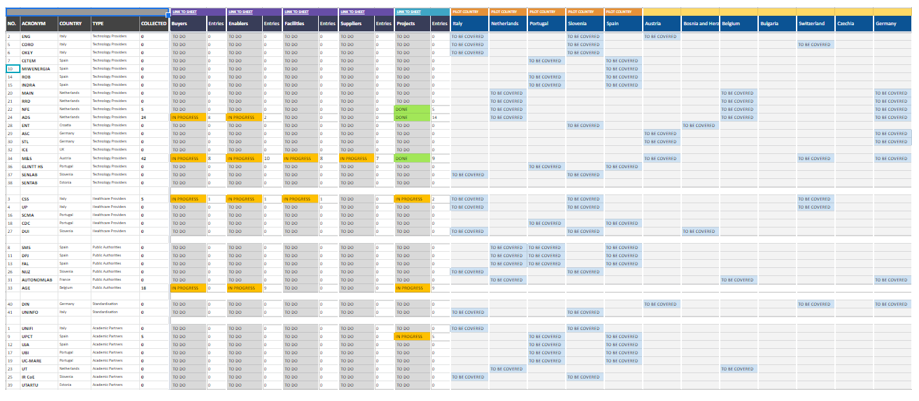
24 Oct EU-Japan.AI: Reaffirming the importance of long-term strategic partnership between EU and Japan
The EU-Japan.AI project ends after 22 months of coordination and support actions aimed at establishing and stimulating a long-term cooperation between EU and Japan in areas relevant to AI-driven innovation in manufacturing and digital industry. As a result of continuous stakeholder engagement activities, the project reaffirms the importance of long-term strategic partnership between EU and Japan.
After 22 months, the H2020-funded research project EU-Japan.AI: Advancing Collaboration and Exchange of Knowledge Between the EU and Japan for AI-Driven Innovation in Manufacturing has been finalised. Coordinated by MINDS & SPARKS, in collaboration with consortium partners Meiji University, The United Nations University, Jozef Stefan Institute, TECNALIA and Laboratory for Manufacturing Systems and Automation, a structured engagement strategy has been implemented to establish and stimulate a long-term cooperation between EU and Japan.
Stakeholder engagement strategy
The stakeholder engagement strategy targeted research funders and related agencies, local governments and SMEs, researchers and innovators and industry representatives from EU and Japan, working in the AI for manufacturing domain. During the initial phase of the project, the consortium was focused on gathering and analysing data and establishing as many contacts as possible. Overall engagement was complex as the pandemic represented a big challenge, especially when considering the importance of physical meetings for networking and collaboration. In response to these challenges, the consortium organised various (mostly digital) events, such as roundtables and webinars, across and beyond Europe and Japan.
International survey of manufacturing workers
To improve the acceptance of AI by society, particularly by manufacturing workers, it was important to understand their knowledge and, even more important, their perceptions, expected benefits and concerns regarding negative impacts of AI in their jobs. To this end, a multi-national survey has been conducted to address these issues in a novel study amongst non-managerial workers across all partner countries. Over 1000 participants with at least 100 from each locale were recruited, resulting in several interesting initial analyses.
Awareness raising and promotion
To create strong impact and raise awareness on the project’s results, the consortium partners identified the target audience and delivered clear messages through the appropriate channels, supported by a strong project identity that aligned the dissemination goals. As a result, the project has identified that representatives of EU and Japan focus on ensuring that AI is developed in a way that preserves human rights, encourages broad human benefits and promotes social well-being. Conveying these messages helped to increase trust of general public that AI development in EU and Japan will be ethical, human-centric, secure, transparent, privacy conscious and socially driven, thereby increasing the public support to implement AI strategies more successfully.
Key project outputs
After 22 months, the project concluded with the following key achievements:
- Increased research excellence addressing not only the gaps, barriers, ethical and legal issues but also the AI adoption levels in manufacturing
- Cocreation activities have been performed in order to establish synergies with all defined stakeholder groups taking into account their concerns and needs
- A significant amount of data was gained as a result of an international survey of manufacturing workers focused on understanding expected benefits and concerns about AI in their workplace
- Japanese stakeholders related to AI and the manufacturing sector have been identified and connected with the EU stakeholders for potential future cooperation
- The implemented EU-Japan.AI open, web-based platform has provided sustainable, targeted and user-centred information approach to create opportunities and kick-off cooperation activities
- Final insights, lessons learned, results and materials have been made available to ensure the gathered information can be shared with interested target groups beyond the end of the project
Future collaboration and research excellence impacts
The created EU-Japan.AI Platform will ensure sustainability of the project outcomes, not only by remaining online for the upcoming years, but also because it is an important element that can be used in several follow-up activities. The provided insights on gaps and challenges as well as the established recommendations and lessons learned on working approaches and communication styles between EU and Japan will allow consortium partners and external stakeholders to establish further research, development and innovation activities that can further help to establish and stimulate a long-term cooperation between EU and Japan in areas relevant for AI-driven innovation in manufacturing and digital industry.
Links
Project website: https://project.eu-japan.ai/
Platform: https://www.eu-japan.ai/
Twitter: https://twitter.com/EUJapanAI
LinkedIn: https://www.linkedin.com/in/EUJapanAI
YouTube: https://www.youtube.com/channel/UCc5sQ2Rjq0_ESUb7ieJ5kPg
Keywords
manufacturing, Artificial Intelligence, platform, open exchange, cooperation, knowledge exchange

